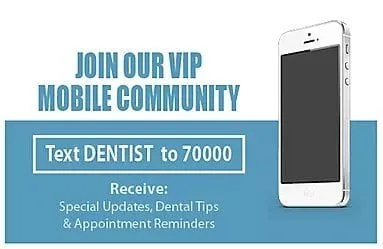
Is talking to your dentist a confusing experience? Do you find yourself unable to understand basic facts about your care plan because your dental care professionals are using medical terminology that you are not familiar with? Don’t worry--you are not alone! It is quite common for dental care professionals to use terminology that pertains to their dental care processes, and that can leave patients like us in the dark, wondering what is being said to us and around us.
Don’t hesitate to ask questions if you feel like you are unable to understand terminology; you want to ensure that the messages you are being sent are coming through clearly so you can make informed decisions regarding your dental care. The more informed you are, the more you will be able to play an active role in what happens concerning your teeth. Consider yourself a partner with your dentist, and commit to learning these terms before your next scheduled dentist appointment:
Dentures--Dentures are removable replacements for missing teeth. Dentures can be full sets of teeth that fit over existing gum tissue, or they can be partials that slip in comfortably in between existing teeth. Dentures give you all the confidence, chewing and speaking ability that regular teeth do, and it prevents more invasive dental procedures from needing to take place.
Implants--Implants are a permanent replacement for damaged or missing teeth. They are surgically placed into the jawbone and allowed to anchor to existing tissues in the mouth, where they become a normal part of your mouth. Implants can be used to replace a single tooth or a group of teeth; often you will find implants as part of a partial, holding bridges in place to strengthen teeth.
Invisalign--This innovative dental treatment is a set of clear alignment sleeves designed to be worn over teeth as a means of straightening teeth and correcting the anatomy of the bite. Invisalign dental alignment sleeves are typically worn for one to two weeks before moving on to the next set. Depending on the correction that is needed, you may wear Invisalign for six months to a year, but the result will be a straight, even set of pearly whites.
Laser Dentistry--Laser dentistry is a fantastic tool for getting rid of plaque, shaping and stimulating circulation in soft tissues, performing root canal therapy, and teeth whitening. Because of its almost painless application, laser dentistry reduces the need for local anesthetic application and drilling, and it dramatically reduces healing time needed for dental procedures.
Oral Surgery--Oral surgery may sound intimidating, but dentists do what they can to make procedures as painless and non-invasive as possible with current technologies. Dental surgery can correct issues like impacted or infected teeth, bruxism, and TMJ. In addition, oral surgery can prepare the mouth to receive dental hardware such as implants, partials, and bridges.
Sedation--With over 30 million people reporting some anxiety and fear about going to the dentist, sedation dentistry is becoming more and more popular. In sedation dentistry procedures, a patient is given a mild sedative, allowing them to rest in comfort while dental procedures are performed quickly and painlessly.
Whitening--Most people desire a bright and healthy smile, as it is an indicator of youth, vitality, and health. Whitening is a bleaching procedure that removes stains from teeth and reveals your whitest and brightest version of you.
TMJ--Temporomandibular joints are pieces of connective tissue that hold the upper and lower jawbones together and provide for fluid movement between the two plates. TMJ is the inflammation of these tissues, which can affect the movement of the jaw, headache, and ear pain. Dentists can repair and stimulate this connective tissue to reduce the symptoms of TMJ.
Veneers--Veneers are porcelain covers for your existing teeth. When fitted over existing teeth, they improve the look, strength, and functionality of your teeth. Veneers are highly stain resistant and can dramatically improve the look and feel of your teeth.
Wisdom teeth--Wisdom teeth are the last set of molars to grow near the back of the jawline. They usually make their appearance when a patient is between the ages of 17 and 25; often if there is not enough room for these teeth to erupt naturally through the gumline, dentists will perform an extraction of the wisdom teeth to make room for other teeth in the mouth.
Communication Is Key
Having a conversation with your dental care professionals is critical to ensuring that you are receiving the best care. Learning more about what kinds of procedures are included in your care plan and asking questions for understanding will give you increased confidence that the decisions you make with your dentist will provide you with the best outcome possible. Talk to your dentist, ask questions, and make sure you understand any processes you will be going through to receive quality care that meets all of your needs.
Your Partner In Dental Health
Dr. Gordon E. Krueger, DDS, MS, PA has an impressive history of creating quality care plans that fit the needs of all patients. Utmost care is given to ensure that patients understand dental procedures and insurance processes so that they have peace of mind when attending to their care needs. Trust the talented associates at Dr. Gordon E. Kruger’s office to meet and exceed all of your dental care expectations. Visit https://www.gordonekruegerdds.com to become a partner on your way to vibrant dental health!








